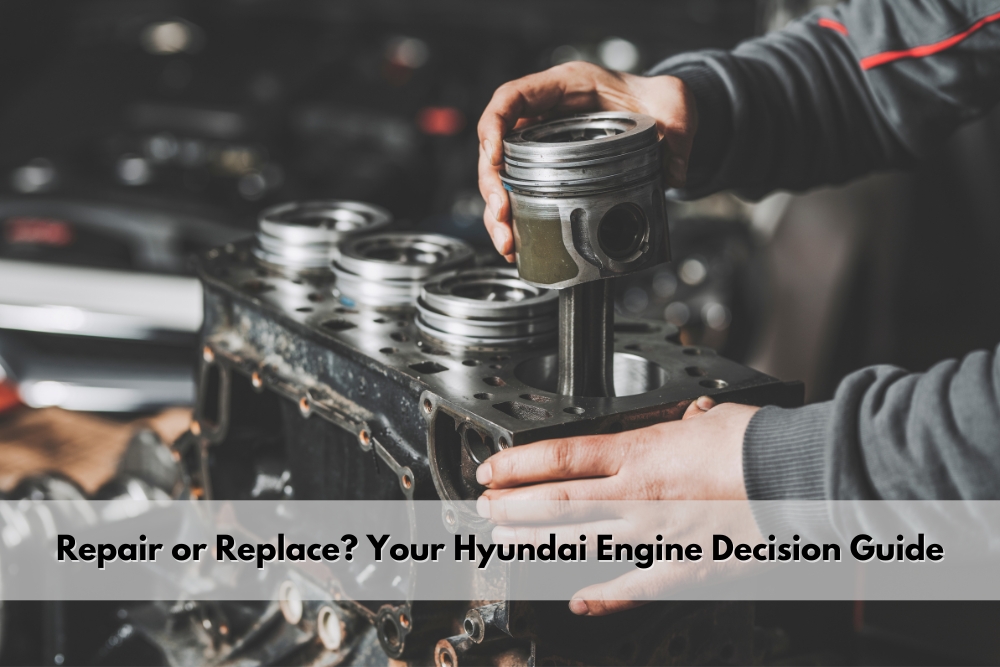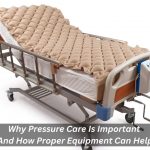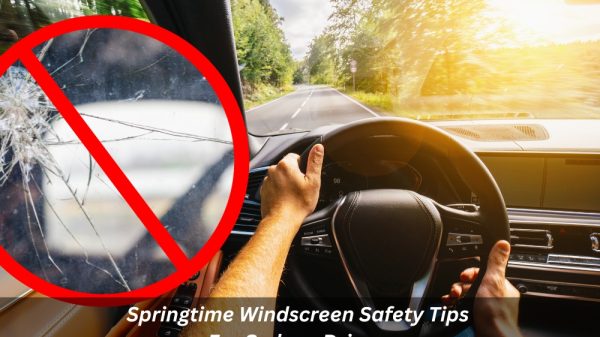The sound your Hyundai used to produce was quite common and now it’s making an uncomfortable noise. It glares back at you like an ominous beacon of darkness, and that eager response to the gas pedal is now but a mere shadow of what it used to be. Should you throw away your faithful old car and buy a new one, or can you bring it to a mechanic to fix the issues?
Don’t fret! Through the use of this guide, you will be in a position to make an informed decision on whether it is more economical to repair or replace your Hyundai’s engine. We will discuss how one can identify the signs of trouble, the prospects of each of the possibilities, and why one should not hesitate to turn to a professional. But what if repairs are not necessary? This guide will also inform you when you may need a replacement engine, and sources where you can obtain quality guaranteed Hyundai engines to have your car running once again.
Signs you might need engine repair or replacement
But, let’s first overview what may contribute to understanding that your Hyundai engine needs attention ASAP. These can include:
- Strange noises: Is your engine making more loud rustling, knocks, or clanging noise than music or orchestra? These noises could be a sign of faulty parts or some internal problem in the engine without the car owner knowing the exact cause.
- Check engine light: This glowing image on your dashboard is like a flare to the red alert that your engine may be at risk. As it can represent many things, it is an indication that you should take your Hyundai to a mechanic.
- Reduced power: Do you feel like the Hyundai you once boasted of performing very well on the road is slowing down? This could be attributed to a combination of different engine complications, which in one way or another affect the generation of power needed for mobility.
- Abnormal oil consumption: So, be sure you don’t run out of oil, do not let the indicator drop out of sight. The burning of oil may be a result of faulty piston rings or other problems in the internal structure of the engine.
- Visible leaks: Leaking beneath the hood is never a good sight to behold, regardless of the fluid it is – oil, coolant, etc. They can locate areas that may have been poorly welded or parts that were welded but may have been unduly exposed to heat.
If one identifies these symptoms, then s/he may be in for an engine repair, though if the symptoms are severe then it may be probable that one might have to replace the engine. Now let us take a look at the factors of the considerations for each of the options.
Evaluating engine repair
Hence it could mean that engine repair has potential if afforded the right circumstances. Here are some key considerations:
- The severity of the damage: This means that an instance such as a cracked sensor might only take a small fix or may require a replacement of internal parts.
- Age and mileage of the vehicle: In general, repair costs can be lower in cars that are relatively new and their kilometres indicate lower intensity of use. This is especially so if you are using your car for business as your car’s value decreases with age, it may be more advisable to replace the car.
- Cost of repairs compared to replacement: Request several car repair workshops for an approximate cost of the repair by comparing it with the price of a new or a refurbished engine. Are you in need of affordable and quality reconditioned engines for used Hyundai vehicles in Melbourne? Look no further! This is not a myth, many reliable Hyundai engine supplier has a reservoir of good quality reconditioned engines cheaper than brand new ones.
- Availability of replacement parts: As for older Hyundai models, spare parts for vehicles can be readily available at times while at other times it might require a herculean task to locate the relevant parts. Sometimes, the pros of having a very useable, proven reconditioned engine – with parts that are easy to get hold of – may tip the balance.
When engine replacement might be necessary
There are situations where replacing the engine becomes the more logical choice:
- Extensive engine damage or internal failure: If an engine has been severely damaged to a level that cannot be easily fixed, then replacement may be the only option.
- High repair costs exceeding the car’s value: It becomes uneconomical to replace the engine when the expense of doing so is more than the actual worth of your Hyundai.
- Difficulty finding replacement parts: Referring to previous discussions, it should be noted that for older models, it becomes rather difficult to locate parts that are required for a complicated repair. In such situations, a reconditioned engine is the best remedy one can ever imagine.
- Desire for improved performance or fuel efficiency: Maybe your existing engine is solid, but the power or fuel efficiency you want is not enough. On such occasions, one could consider getting a new engine in your Hyundai that might give your vehicle better horsepower or better fuel consumption.
Additional considerations for your decision
Beyond the repair vs. replace dilemma, there are other factors to weigh:
- Warranty coverage (if applicable): Every vehicle owner should consult with the Hyundai manufacturer to determine if the warranty can still be used on any engines that require repair and the corresponding expenses from the repair. So this factor could strongly affect this decision.
- Your mechanical knowledge or access to a trusted mechanic: If one has no qualms with squeezing it or, has a mechanic, whom one fully trusts, it can be helpful to get an estimate and analysis of problems.
- Overall condition of your Hyundai besides the engine: The strategic planner must also seek to consider the overall health or condition of the car. If the engine accounts for all primary complaints, repair or replacement could be warranted. However, if other parts of the vehicle or the body are in particular of a fix, then it would be right to look for a brand-new car that could solve the problems.
Conclusion
This is a question that constitutes one of the most crucial decisions when it comes to your Hyundai vehicle’s powerplant. Thus, remembering the warning signs and following the guiding factors of each option, one might choose the right path that will keep the beloved Hyundai roaring happily to the next destination. As you know, the mechanical health of an engine is a sound beginning towards a cheerful motor vehicle not to mention a contented driver!












